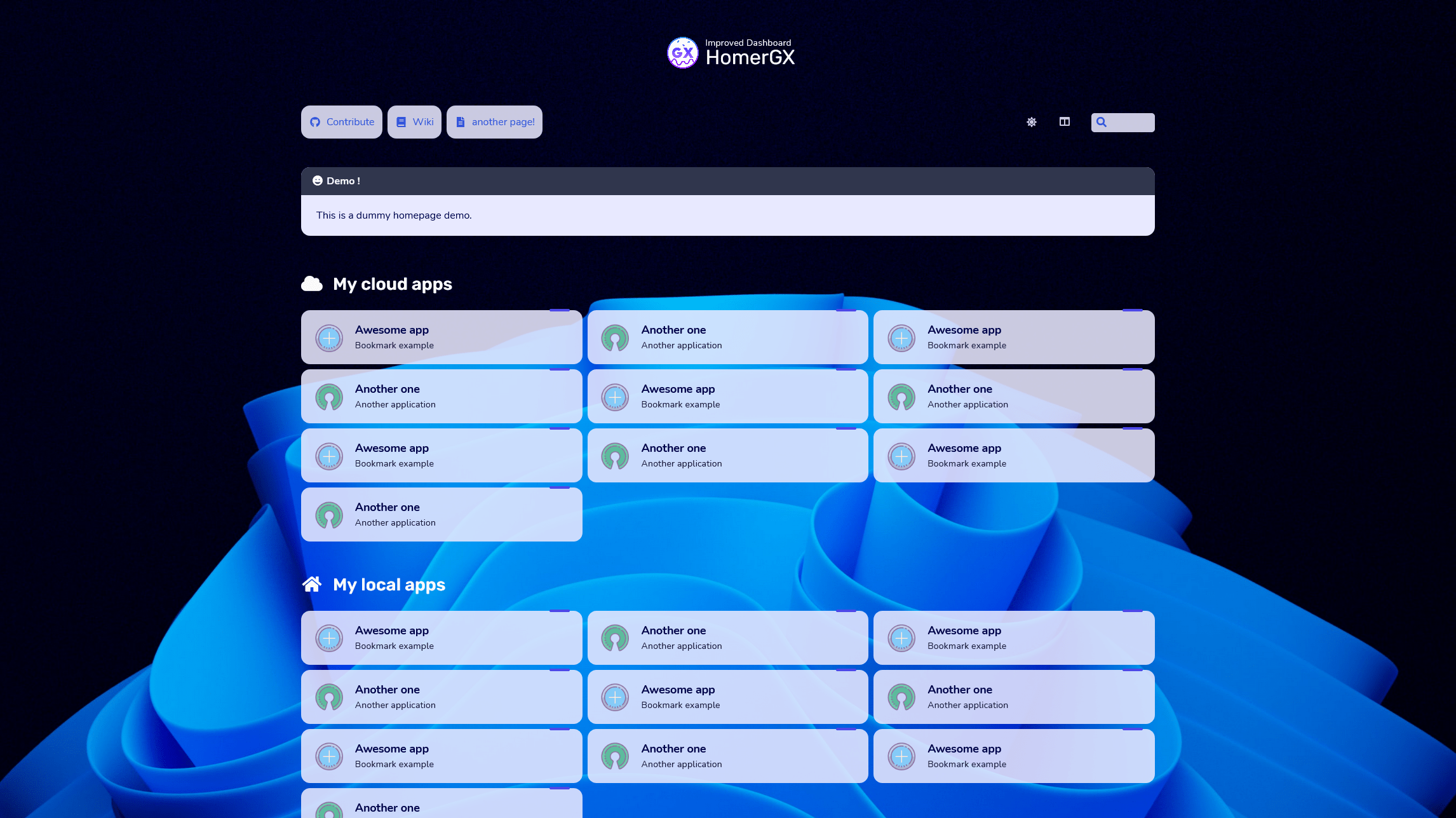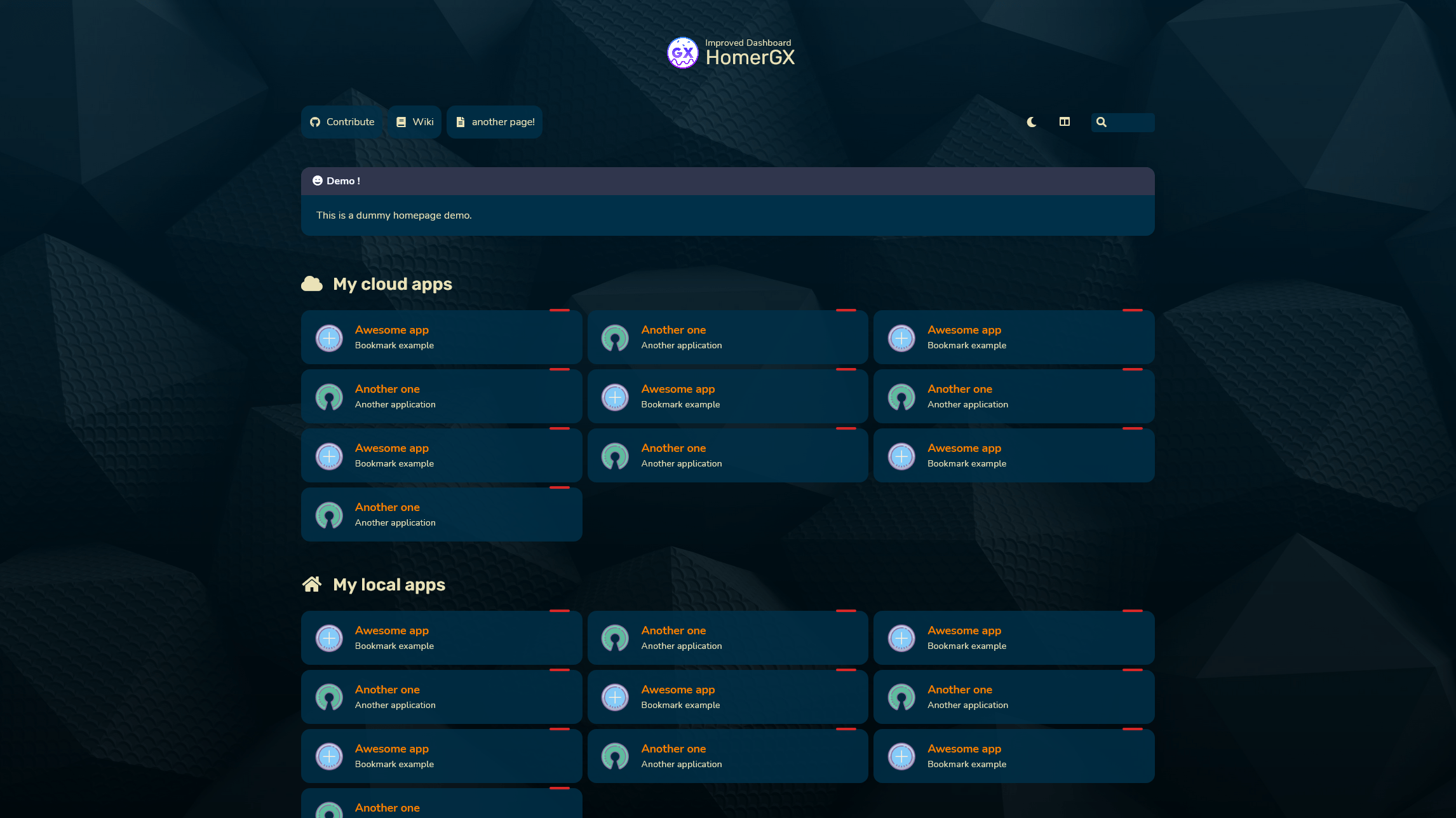Demo | Docker image | Getting started
| Light Mode | Dark Mode |
|---|---|
 |
 |
- Features over the original
- Getting started
- Configuration
- Custom services
- Tips & tricks
- Development
- Troubleshooting
The project was forked at version v21.09.2, some of the things below might not hold true anymore
- Cleaner code
- Color mode can be forced(light/dark/auto) and the button can be hidden
- Layout can be forced vertical/horizontal and the button can be hidden
- Search can be disabled
- Modern theme already bundled in
- More services
- More bundled themes
HomerGX is a full static html/js dashboard, generated from the source in /src using webpack. It's meant to be served by an HTTP server, it will not work if you open dist/index.html directly over file:// protocol.
See documentation for information about the configuration (assets/config.yml) options.
To launch container:
docker run -d -p 8080:8080 -v </your/local/assets/>:/www/assets --restart=always ghcr.io/georgegedox/homergx:latestDefault assets will be automatically installed in the /www/assets directory. Use UID and/or GID env var to change the assets owner (docker run -e "UID=1000" -e "GID=1000" [...]).
The docker-compose.yml file must be edited to match your needs.
Set the port and volume (equivalent to -p and -v arguments):
volumes:
- /your/local/assets/:/www/assets
ports:
- 8080:8080To launch container:
cd /path/to/docker-compose.yml
docker-compose up -dDefault assets will be automatically installed in the /www/assets directory. Use UID and/or GID env var to change the assets owner, also in docker-compose.yml:
environment:
- UID=1000
- GID=1000Download and extract the latest release (homergx.zip) from the release page, rename the assets/config.yml.dist file to assets/config.yml, and put it on a web server.
wget https://github.com/GeorgeGedox/HomerGX/releases/latest/download/homergx.zip
unzip homer.zip
cd homer
cp assets/config.yml.dist assets/config.yml
npx serve # or python -m http.server 8010 or apache, nginx ...# Using npm
npm install
npm run buildYour dashboard is now ready for use in the /dist directory.
- Original code and assets by the Homer project team and it's contributors
- Background images from Unsplash content creators Richard Horvath, SIMON LEE, Voicu Apostol




